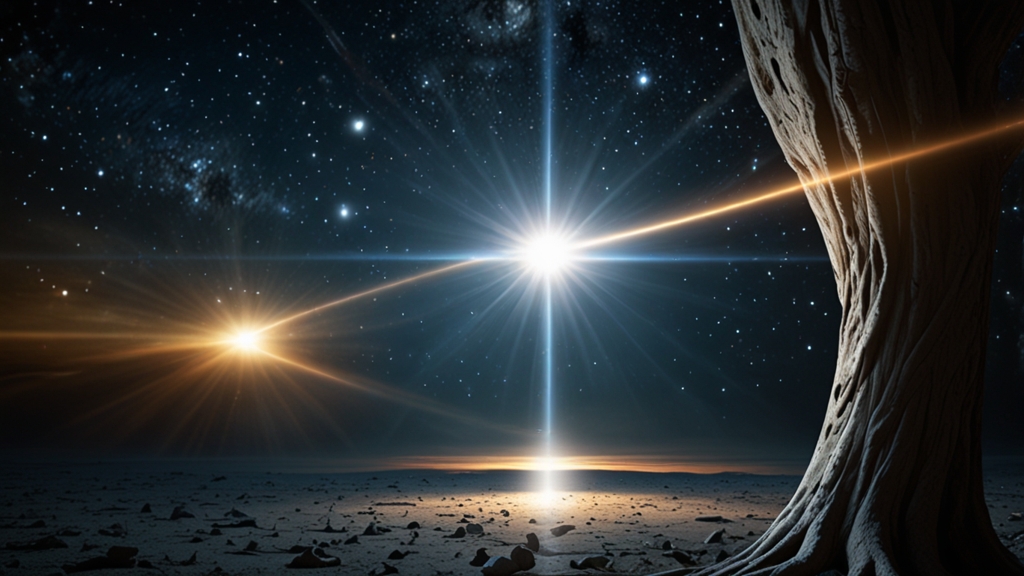What Do the Prophets Say About the End of Days?
The concept of the "End of Days" or "Apocalypse" has intrigued humanity for millennia, often evoking a blend of fear, curiosity, and hope. Across various religious traditions, prophets have prophesied about the eventual culmination of current human history and the advent of a new, transformative era. This article delves into the insights of some of the most recognized prophets from different religious backgrounds, providing a window into their visions for the future of humankind.
Prophecies in Christianity
In Christianity, the Book of Revelation, attributed to John the Apostle, stands at the forefront of eschatological literature. Here, a vivid series of visions are recounted, featuring the Four Horsemen of the Apocalypse, the battle of Armageddon, and the ultimate triumph of good over evil. A key theme is the return of Jesus Christ, known as the Second Coming, where He establishes a new heaven and a new earth.
“Then I saw a new heaven and a new earth, for the first heaven and the first earth had passed away, and there was no longer any sea. [...] He will wipe every tear from their eyes. There will be no more death or mourning or crying or pain, for the old order of things has passed away.” (Revelation 21:1-4)
This vision emphasizes both a reckoning and a promise of eternal peace and renewal, encapsulating the dual themes of judgement and redemption.
Jewish Eschatology
In Judaism, the "End of Days" is often associated with the coming of the Messiah (Mashiach), who will usher in an era of universal peace and justice, known as the Messianic Age. Prophets like Isaiah and Ezekiel provide detailed descriptions of this transformative period.
“They will beat their swords into plowshares and their spears into pruning hooks. Nation will not take up sword against nation, nor will they train for war anymore." (Isaiah 2:4)
Here, the prophetic vision is one of harmony and the end of conflict, projecting a utopian future where human society aligns with divine principles of justice and mercy.
Islamic Visions of the Apocalypse
In Islamic tradition, the "End of Days" (Yawm al-Qiyamah) is a significant part of eschatology and encompasses various stages, including the arrival of the Mahdi, the return of Jesus (Isa), and the final judgement by Allah. These events are chronicled in both the Quran and Hadith literature.
“The Hour will not be established until the son of Mary (i.e., Jesus) descends amongst you as a just ruler…” (Sahih Al-Bukhari, Volume 3, Book 43, Number 656)
The prophetic sayings in Islam share similarities with Christian eschatology, particularly regarding the return of Jesus, but also maintain distinct elements unique to Islamic teachings.
Hindu Perspectives on the End of the Cycle
In Hinduism, the concept of Yuga cycles denotes the eternal pattern of creation and destruction. The current age, Kali Yuga, is characterized by moral decline and spiritual degradation. The end of this age is prophesied to bring the arrival of Kalki, the final avatar of the god Vishnu, who will restore dharma (cosmic order).
The Vishnu Purana describes this event, highlighting the transformational nature of Kalki's arrival as a force for renewal and the establishment of righteousness.
Buddhist Prophesies and the Maitreya
Buddhism incorporates the future arrival of Maitreya, the Buddha of the future, who will appear in a world where the teachings of Gautama Buddha have been forgotten. Maitreya's advent signifies a return to the path of enlightenment and the flourishing of the Dharma.
This cyclical vision aligns with Hinduism's Yuga cycles, suggesting that the end of the current age will eventually lead to a new epoch of spiritual revival and moral rectitude.
Conclusion
Though the specifics of eschatological visions vary widely among different religious traditions, a common thread of transformation and renewal runs through them. These prophecies not only reflect humanity's hopes and fears about the future but also serve as moral and spiritual guideposts, urging us to reflect on our present actions and their ultimate repercussions. Whether viewed through the lens of judgment and redemption, or as cycles of creation and destruction, the prophetic voices of the past continue to resonate, offering profound insights into the ever-fascinating mystery of the "End of Days."









